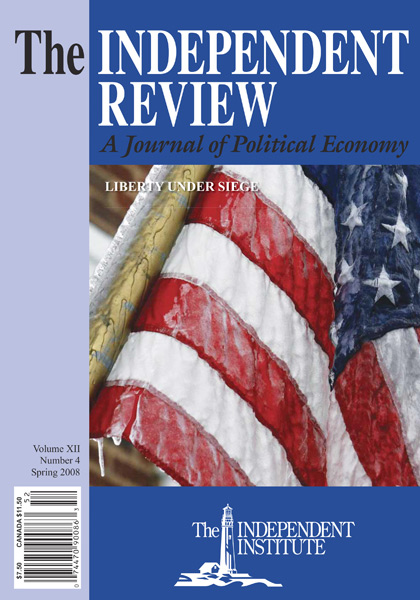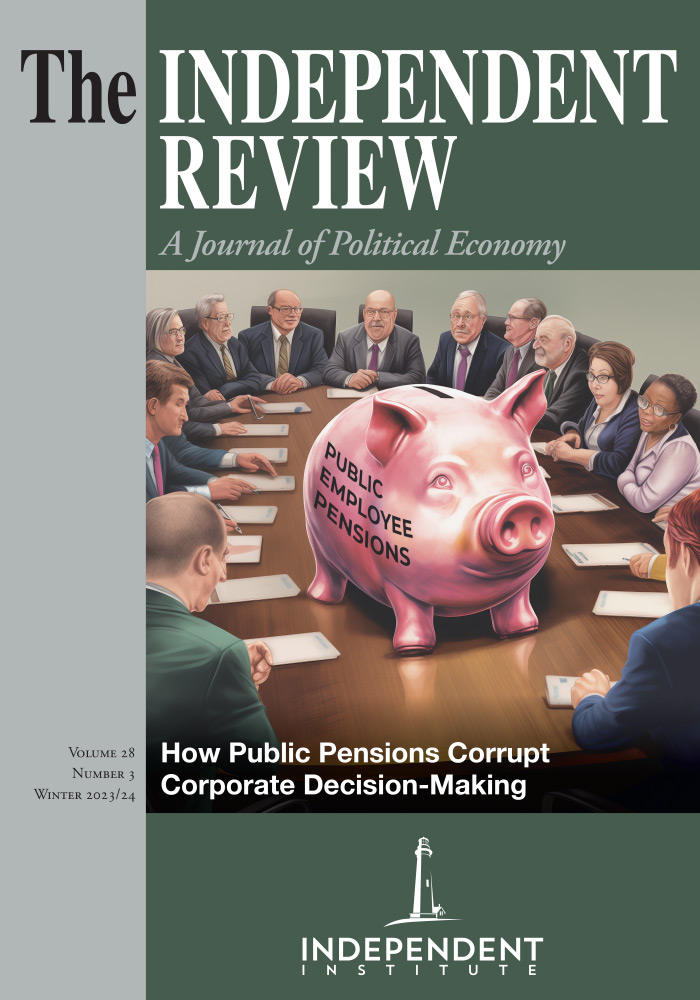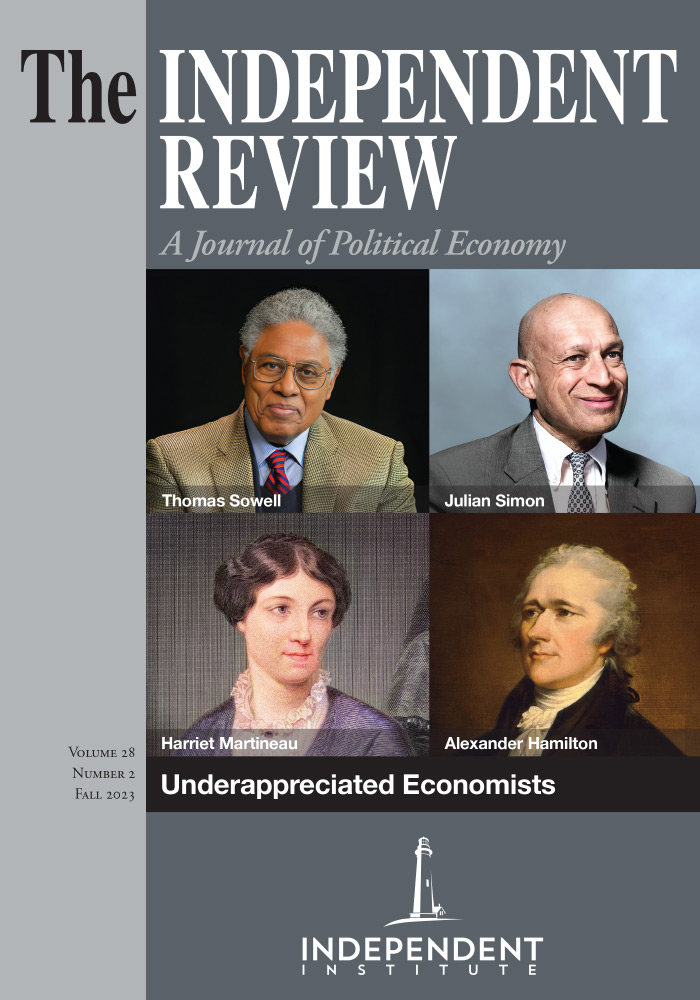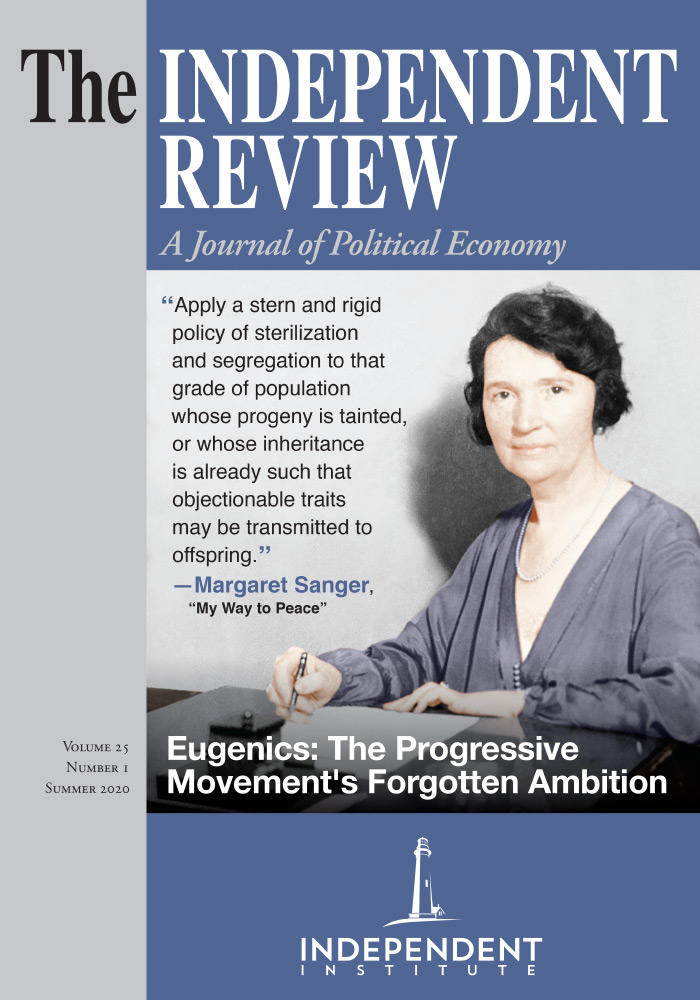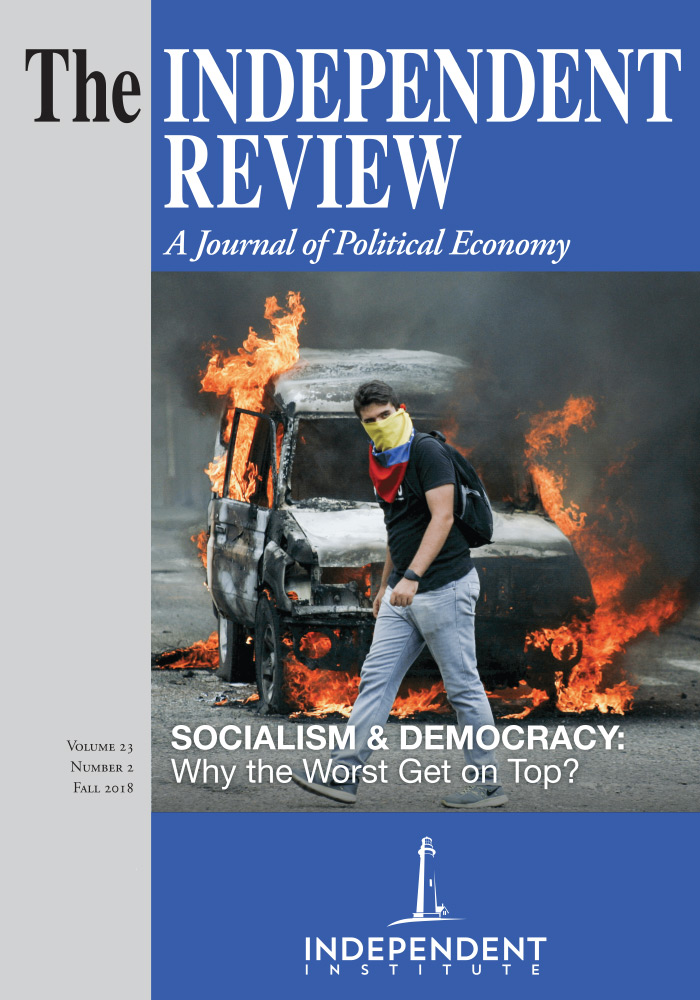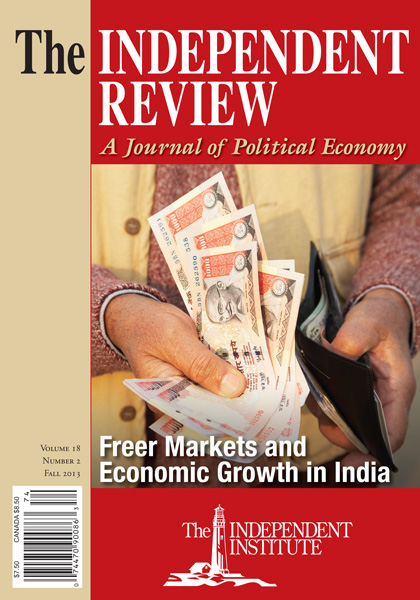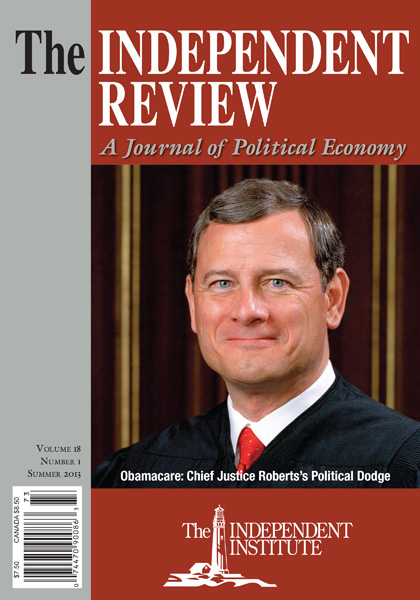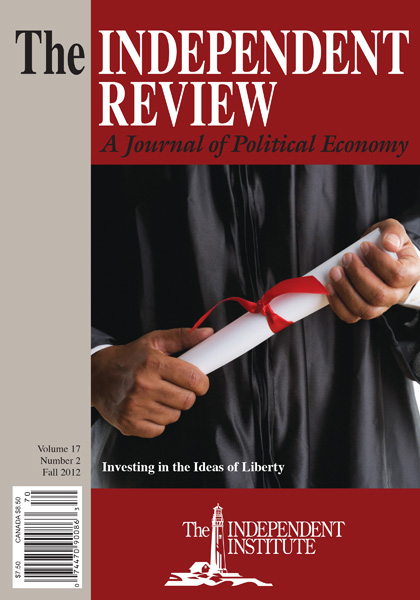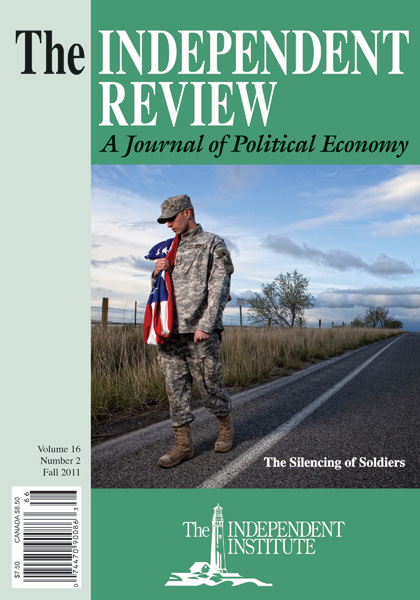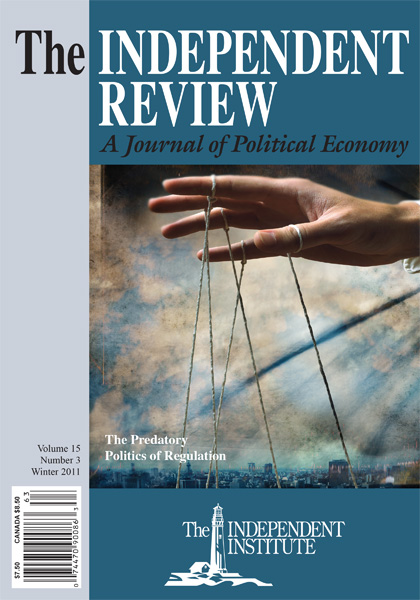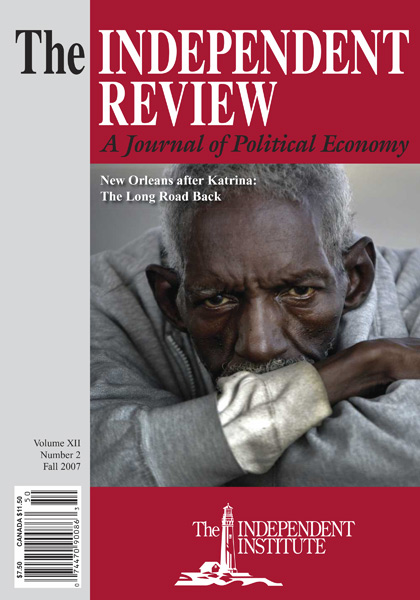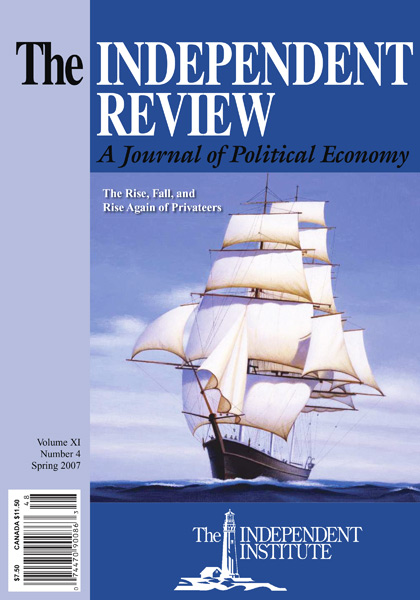When I was teaching, one of the phrases I had many occasions to write on students’ papers was: “Specify, do not characterize.” James C. W. Ahiakpor’s review of my book On Classical Economics in the fall 2007 issue was long on characterizations and short on specifics.
The fact that various other writers have interpreted things differently is characterized by him as their having “corrected” such interpretations as mine. The fact that these differing interpretations are more recent than some of the writings reprinted in my book is offered as a substitute for any specifics as to why they are more accurate. There have been different interpretations before, during, and after what I wrote. But that says nothing about which is more accurate or why.
The opening characterization of the review—“Thomas Sowell’s On Classical Economics is about how little Sowell thinks of classical economics”—telegraphed the approach of substituting cheap shots for analysis.
—THOMAS SOWELL
Professor Ahiakpor replies:
I find Thomas Sowell’s reaction to my review of his book rather puzzling. In my understanding, a book reviewer’s task is to summarize and evaluate a book’s contents so as to alert readers to what they may expect. A book review thus entails characterization, as my 1980 copy of the Webster’s New Collegiate Dictionary confirms in defining characterize as “to describe the character or quality of” and review (verb) as “to give a critical evaluation of.”
A book review is not the place for detailed counteranalysis or criticisms. Thus, I gave brief explanations of why Sowell’s treatment of the classical theories of value and Say’s Law are incorrect, why his treatment of classical macroeconomics is incomplete, and why his view on the development of economic theories is wrong. I also provided readers with sources of more informed treatment of these issues. (My own book, Classical Macroeconomics: Some Modern Variations and Distortions [New York: Routledge, 2003], deals with these issues, especially in chapters 2, 4, 9, and 12.) The review’s concluding paragraph also includes explanations of why I think Sowell’s treatments of Smith on rent and price determination and of Ricardo on policy prescriptions are incorrect. Few careful readers of my review would miss these specifics.
Sowell’s book is marketed as “[a] fresh look at classical economics by an economist who has researched and written on this subject for more than four decades,” which “can enable a course on the history of economic thought to make a contribution to students’ understanding of economics in general” (inside dust cover). Neglecting to deal with the relevant literature since the early 1970s, as Sowell does, is not consistent with the first claim. Moreover, it does not strike me as serious scholarship to ignore subsequent analyses that are contrary to one’s own.
Cheap shots? I disagree.
| Other Independent Review articles by James C. W. Ahiakpor | ||
| Summer 2008 | Mystifying the Concept of Capital: Hernando de Soto’s Misdiagnosis of the Hindrance to Economic Development in the Third World | |
| Fall 2007 | On Classical Economics | |
| Spring 1999 | Ethnic Diversity, Liberty and the State: The African Dilemma | |
| [View All (4)] | ||

